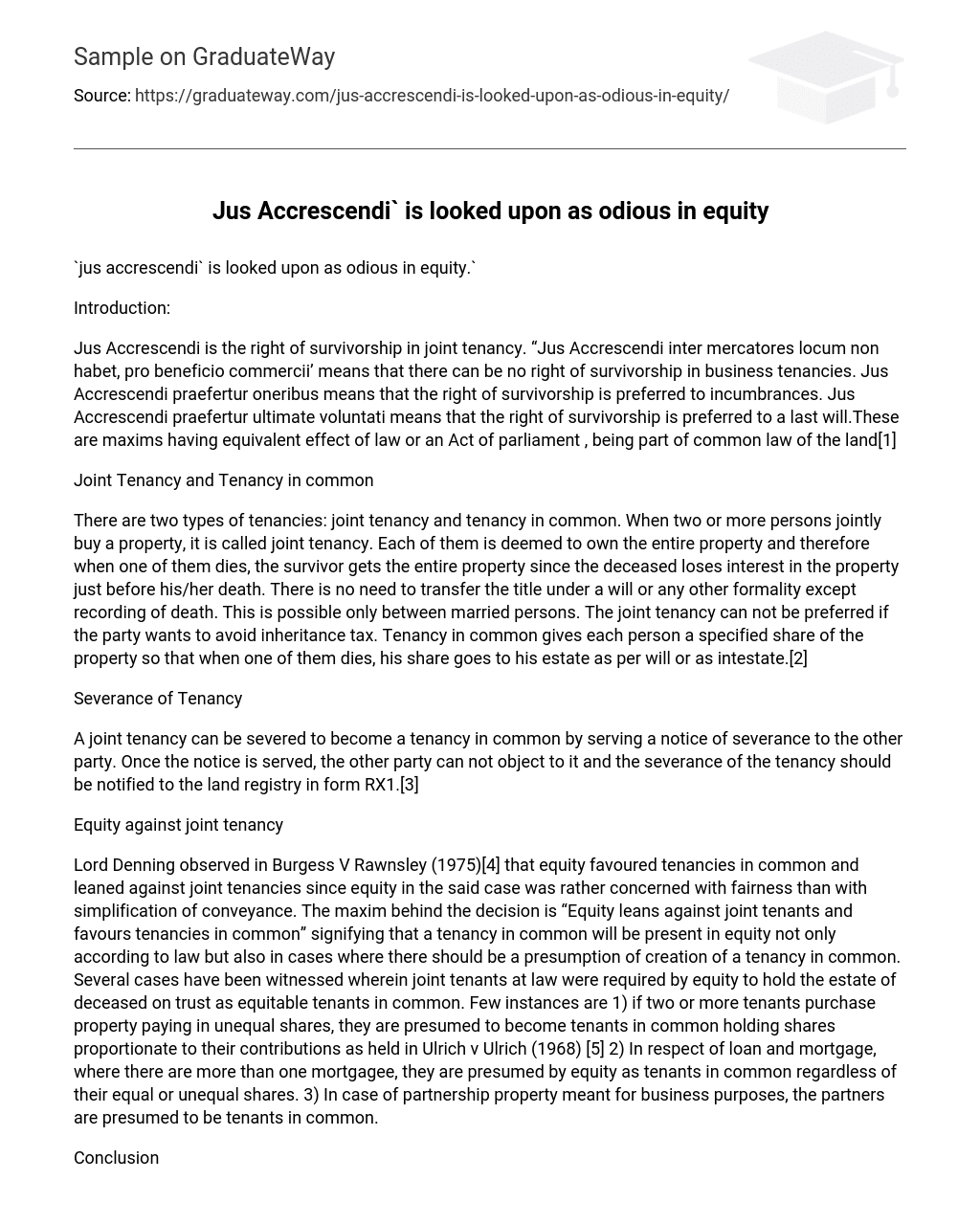Introduction
Jus Accrescendi is the right of survivorship in joint tenancy. “Jus Accrescendi inter mercatores locum non habet, pro beneficio commercii’ means that there can be no right of survivorship in business tenancies. Jus Accrescendi praefertur oneribus means that the right of survivorship is preferred to incumbrances. Jus Accrescendi praefertur ultimate voluntati means that the right of survivorship is preferred to a last will.These are maxims having equivalent effect of law or an Act of parliament , being part of common law of the land.
Joint Tenancy and Tenancy in common
There are two types of tenancies: joint tenancy and tenancy in common. When two or more persons jointly buy a property, it is called joint tenancy. Each of them is deemed to own the entire property and therefore when one of them dies, the survivor gets the entire property since the deceased loses interest in the property just before his/her death. There is no need to transfer the title under a will or any other formality except recording of death. This is possible only between married persons. The joint tenancy can not be preferred if the party wants to avoid inheritance tax. Tenancy in common gives each person a specified share of the property so that when one of them dies, his share goes to his estate as per will or as intestate.
Severance of Tenancy
A joint tenancy can be severed to become a tenancy in common by serving a notice of severance to the other party. Once the notice is served, the other party can not object to it and the severance of the tenancy should be notified to the land registry in form RX1.[3]
Equity against joint tenancy
Lord Denning observed in Burgess V Rawnsley (1975) that equity favoured tenancies in common and leaned against joint tenancies since equity in the said case was rather concerned with fairness than with simplification of conveyance. The maxim behind the decision is “Equity leans against joint tenants and favours tenancies in common” signifying that a tenancy in common will be present in equity not only according to law but also in cases where there should be a presumption of creation of a tenancy in common. Several cases have been witnessed wherein joint tenants at law were required by equity to hold the estate of deceased on trust as equitable tenants in common. Few instances are
- if two or more tenants purchase property paying in unequal shares, they are presumed to become tenants in common holding shares proportionate to their contributions as held in Ulrich v Ulrich (1968)
- In respect of loan and mortgage, where there are more than one mortgagee, they are presumed by equity as tenants in common regardless of their equal or unequal shares.
- In case of partnership property meant for business purposes, the partners are presumed to be tenants in common.
Conclusion
Hence survivorship in property can not prevail over equity and it has been rightly called “Jus Accrescendi” (survivorship) is looked up on odious to equity as held in R v Williams (1735) and Re Wooley (1903)
Bibliography
- Law of Property Act 1925
- Chigbo Clement (2005) Joint Tenancy and Equity, The Bahama Journal, November 25





